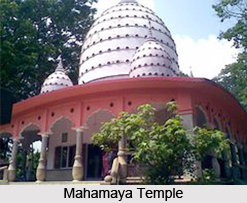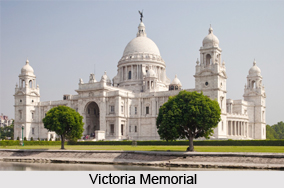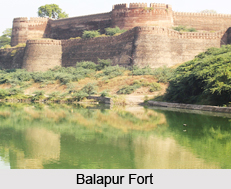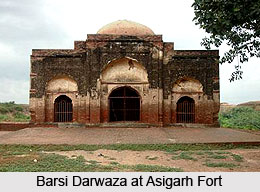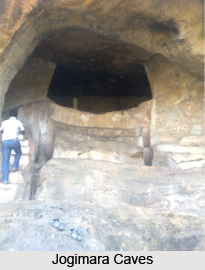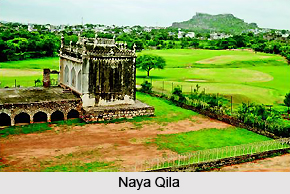 Naya Qila, also known as `Naya Quila`, is a portion of the Golconda Fort which is located in Hyderabad. It was constructed in 1656 AD by Sultan Abdullah Qutb Shah as a defence mechanism against the armies of the Mughals. The interiors of this fort possess numerous historical structures. Idols and figurines of animals composed of stucco and stone are also present inside the premises of this fort. Naya Qila is amongst the few virgin historical forts and heritage sites in the country.
Naya Qila, also known as `Naya Quila`, is a portion of the Golconda Fort which is located in Hyderabad. It was constructed in 1656 AD by Sultan Abdullah Qutb Shah as a defence mechanism against the armies of the Mughals. The interiors of this fort possess numerous historical structures. Idols and figurines of animals composed of stucco and stone are also present inside the premises of this fort. Naya Qila is amongst the few virgin historical forts and heritage sites in the country.
History of Naya Qila
It is said that Aurangzeb, who was then the Mughal governor of the region of Deccan, he had made an attempt to blow off the Naya Qila during the regime of Sultan Abdullah Qutb Shah in January, 1656. However, the fort withstood the ravages of the cannon fire and remained firmly in its position. Finally, the Mughal army was compelled to withdraw in April 1656 AD, after surrounding the fort for four months. But the fort began to weaken on account of the heavy firing by the Mughal armies, and the initial signs of damage started being visible in the form of the gradually leaning walls.
Fearing further losses of this fort, Abdullah Qutb Shah passed an order for the restoration of Naya Qila. The maintenance work of the fort commenced in around 1656 AD. Sultan Abul Hasan Qutb Shah is credited for contributing to further repair work of the fort. After a period of 30 years, when Aurangzeb turned into the Emperor, he decided not to harm this fort anymore simply due to the fact that the presence of this fort was an added protection to the Golconda Fort. Rock masonry was also added to the Naya Qila, which was again another protective shield against enemies. Mustafa Khan is said to have created this marvellous fort. He was the royal architect who worked for the Qutb Shah Sultans. The Toli Masjid and Mecca Masjid were also designed by Mustafa Khan.
Tourist Attractions near Naya Qila
Some of the tourist attractions near Naya Qila are Persian Garden or Bagh-E-Qutb, African Baobab tree and many other historical spots.
Persian Garden or Bagh-E-Qutb
This beautiful garden was the result of the efforts of Sultan Abdullah Qutb Khan, who was the seventh Sultan of Hyderabad between the period of 1625 to 1672.
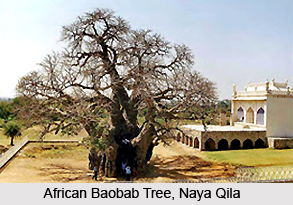
African Baobab Tree
Also locally referred to as `Hatiyan ka Jhad` which means the `Elephant Size Tree`, the Baobab Tree is more than 400 years old. It is believed that some traders belong to Saudi Arabia had brought this tree here, who had gifted it to Sultan Abdullah Qutb Shah. Its girth measures about 27.40 metres and there is a cave which has formed in this tree. There are some interesting stories linked to this tree. As per one tale, about 400 years ago, this tree had aided about 40 thieves to escape notice, who had hid themselves behind this tree.
Mullah Khiyali Mosque and the Mosque of Mustafa Khan
There are two mosques located in the grounds of the fort, known as Mosque Mullah Khiyali and the Mosque of Mustafa Khan. The Mosque of Mullah Khiyali was built in the memory of the poets who were patronised by the Qutb Shah Sultans. The Mosque of Mustafa Khan was built to pay tribute to the royal architect who rendered their services to Qutb Shah Sultans. The architecture of these mosques is important specimens of the architecture which was exclusive to Golconda.
Naya Qila Talab
Naya Qila Talab is a water body which was known to connect the water bodies which were based outside, as well as inside the Qila. Presently, the Talab is in urgent need of repairs. There are old remnants of some earthen pipes which are over 350 years old that were utilized for the purpose of water supply during the reign of Qutb Shahi dynasty in the area of Hyderabad.
Shah Hatem Talab
Shah Hatem Talab is a lake which is located close to Naya Qila. It has a capacity of holding nearly 52 acres of water. It was linked to numerous irrigation systems based inside the premises of Naya Qila. This is evident from the many connecting pools and irrigation tunnels.
